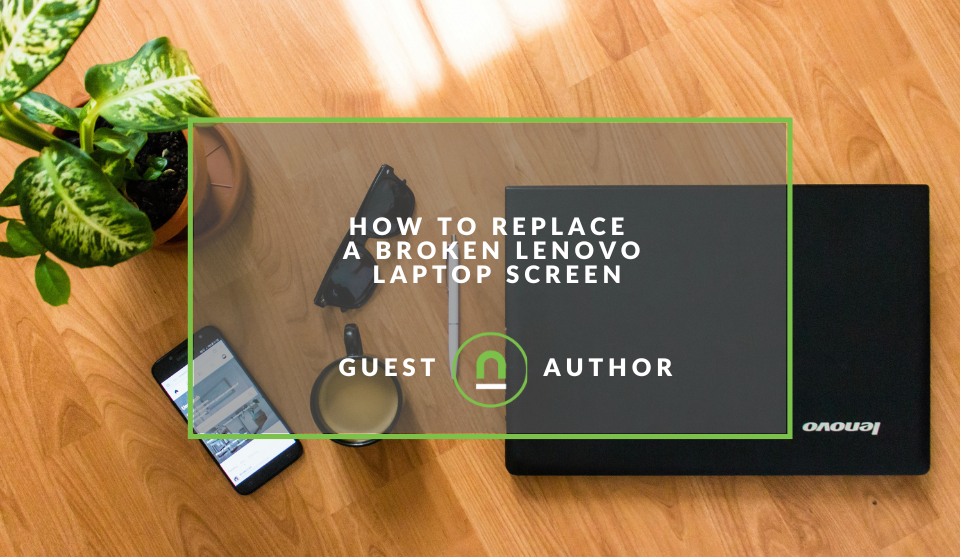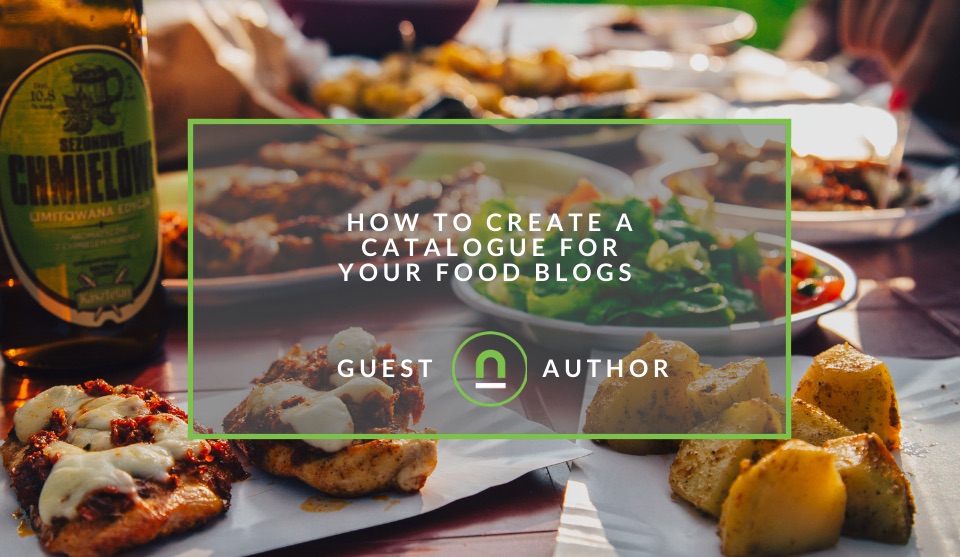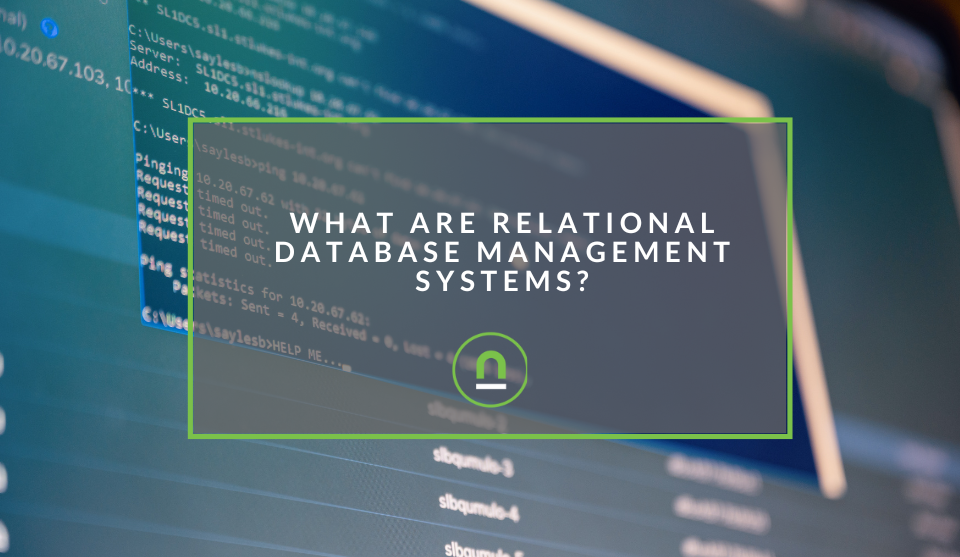Recent posts

Geek Chic
How to Replace A Broken Lenovo Laptop Screen
24 April 2025

Money Talks
Everything You Need to Know About SASSA Status Check
13 April 2025

Mind, Body & Soul
The Genetic Diversity of Cannabis Seeds
12 April 2025

Money Talks
How Small Businesses Can Leverage Blockchain Technology
02 April 2025
Popular posts
Extravaganza
Trending Music Hashtags To Get Your Posts Noticed
24 August 2018
Geek Chic
How To Fix iPhone/iPad Only Charging In Certain Positions
05 July 2020
Extravaganza
Trending Wedding Hashtags To Get Your Posts Noticed
18 September 2018
Money Talks
How To Find Coupons & Vouchers Online In South Africa
28 March 2019
How to Create a Catalogue for Your Food Blogs
12 November 2019 | 0 comments | Posted by Payman Taei in Masterchefs
One of the things that most people love about cooking is that the possibilities are virtually limitless. You could unleash ten different people in a kitchen with the same ingredients and still walk away with ten completely different dishes depending on that unique and creative flair that each person brings with them.
This is one of the reasons why food blogs are so popular - people love seeing what other people come up with when left to their own devices. But in terms of that blog itself, those same endless possibilities could be your biggest challenge to overcome in terms of one very crucial area: organisation.
Just as you would with something like a travel blog, you still need to make the information on your food blog easy to find and digest (no pun intended).
To improve content discovery, it might be wise to create a catalogue - something you can do in a few key ways depending on your preferences.
The art of catalogue creation for food blogs
How you choose to organise your food blog by way of a catalogue will end up being a large part of what makes your domain unique. It will also be dictated by two core elements - your personal preferences and those of your audience members.
Generally speaking, there are several different catalogue "types" you can choose from when looking to add a new level to your food blog.
These include but are certainly not limited to ones like:
Main ingredient
A lot of food blogs use this because it makes collections of similar recipes and blog topics very easy to find. However, if yours is a blog devoted to a very niche topic - like if you only focus on pizza - this won't necessarily be the best way to narrow things down.Type
If the goal of your food blog is to help someone figure out what to make for dinner, for example, this is a great way to catalogue things because readers can quickly find anything you've written on pasta, or soups, or Indian dishes with the single click of a button.Course
This is also a great way to break things up a bit based on which meals are designed to be had at which times of the day. In addition to breakfast, lunch and dinner, you could even break things down further by criteria like snacks, healthy appetisers and more.Special Occasion
People often wonder what they should be brought to a neighbourhood potluck, for example, or they might be on the hunt for something easy they can make to bring for Thanksgiving dinner. This type of catalogue would be a great way to support those with this particular preference.
With any of these, you could even use a presentation maker to create something of a "master document", allowing people to download ALL the recipes in a special category right to their computer or mobile device.
Once you've settled on a general theme for your catalogue, use a grid of images to allow people to find what they're looking for quickly. Someone might have a favourite dish, but they might not be sure what it's called.
A layout that puts the images of those dishes front and centre is a perfect way to appeal to both seasoned kitchen veteran and novice alike.
Additional considerations for building the best food blog possible
Once your catalogue itself has been created, you'll still want to use all of the best practices of content creation to your advantage. Use a service like Respona to build quality backlinks to your catalogue (which primarily serves the same function as a landing page in this scenario), all in the name of gaining as much organic traffic as you can.
Don't just publish recipes and photo essays - use a graph maker like Visme (which I founded) to vary up your content, presenting things both visually and in a unique way as often as you can.
But more than anything, make sure that you inject as much personality into your food blog as possible. People don't just want to learn about delicious dishes.
They want to learn about them from you. The pretty food pictures are how you get someone's attention for the first time. Using those pictures to give someone a positive impression of who you are is how you keep them coming back for more.
About the Author
Payman Taei is the founder of Visme, an easy-to-use online tool to create engaging presentations, infographics, and other forms of visual content. He is also the founder of HindSite Interactive, an award-winning Maryland digital agency specialising in website design, user experience and web app development.Tell us your story
Would you like to write for nichemarket just like Payman has? Find out how to submit a guest post and when you're ready, you can contact us.
Are you looking to promote your business?
South African food and catering businesses can create your free business listing on nichemarket. The more information you provide about your business, the easier it will be for your customers to find you online.
Registering with nichemarket is easy; all you will need to do is head over to our sign up form and follow the instructions. If you require a more detailed guide on how to create your profile or your listing, then we highly recommend you check out the following articles.
Recommended reading
If you enjoyed this post and have time to spare why not check out these related posts and dive deeper down the rabbit hole that is the restaurant business.
- Meal Delivery Services In South Africa
- Trending Foodie Hashtags to add some Flavour to your posts
- Why Dunkin Donuts & Baskin Robbins Failed In South Africa
- How To Expand Your Restaurant Outreach by Using Social Media
- Add A Booking Service To Your Google Knowledge Graph
- How to Make a Creative Logo for Your Food Business
You might also like
Everything You Need to Know About SASSA Status Check
13 April 2025
Posted by Azhar Khanzada in Money Talks
A guide for 2025 for anyone looking to apply for a SASSA grant or would like to keep up to date with the status of your grant from application to red...
Read moreWhat Are Relational Database Management Systems?
28 March 2025
Posted by Che Kohler in nichemarket Advice
Learn what relational database management systems are, how they organize data using tables and relationships, and why they remain essential for busin...
Read more{{comment.sUserName}}
{{comment.iDayLastEdit}} day ago
{{comment.iDayLastEdit}} days ago
 {{blogcategory.sCategoryName}}
{{blogcategory.sCategoryName}}

